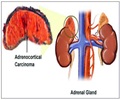University of Florida researchers have found that recharging a naturally occurring oestrogen receptor in the brains of women suffering from certain medical conditions may help boost
Recharging a naturally occurring estrogen receptor in the brains of women suffering from certain medical conditions may help boost their mental performance, University of Florida researchers have found. They say that this could also avoid the problems associated with adding this hormone to the body.
Writing about their findings in the journal Molecular Therapy, the researchers highlighted that they had successfully improved thought process in female mice bred with the inability to produce oestrogen receptor-alpha, a protein apparently necessary for healthy learning and memory."We were able to restore function in these animals, not by dosing them with oestrogen, but by enabling them to use the oestrogen that was naturally present in their bodies," said Dr. Tom Foster, the Evelyn F. McKnight chair for brain research in memory loss at the UF College of Medicine.
"We discovered that you can affect the oestrogen receptor directly in the hippocampus, right where it's needed to address memory and spatial learning," he added.
While previous studies have suggested that oestrogen therapy may help improve cognition in women, it has also been found to increase the risk of breast cancer, heart disease, and stroke.
"Oestrogen may act as a growth agent for cancer, but in the brain, it appears to maintain health and counteract stress. We wanted to come back and enhance the signalling pathway that makes oestrogen functional. We used a gene therapy technique that enables us to target the brain, but ultimately there could be a pharmaceutical that enhances the signalling pathway solely in the brain," Foster said.
The researchers have revealed that the mice in their study had unusually low levels of oestrogen because their ovaries were removed at an early age.
Advertisement
While mice lacking the oestrogen receptor showed poor ability to locate a platform hidden in a small swimming tank over a training period of several days, they learnt to locate the platform in two days of training after receiving the gene.
Advertisement
"This is good news for moving forward to develop clinical interventions and therapeutics because it appears critical damage was not done to brain circuitry during early development. There has also been debate about which of at least two oestrogen receptors is key to synaptic health. Clearly oestrogen receptor-alpha plays a critically important role in hippocampal organization and function," he added.
Scientists believe that studying the effects of increasing the oestrogen receptor in other brain regions may shed additional light on memory processes.
"The research brings up the idea that local activation of non-nuclear oestrogen receptor-alpha is important for regulating memory processes in the hippocampus," said Dr. Teresa A. Milner, a professor of neuroscience at Weill Cornell Medical College, who also was also not involved in the research.
Source-ANI
RAS/L










